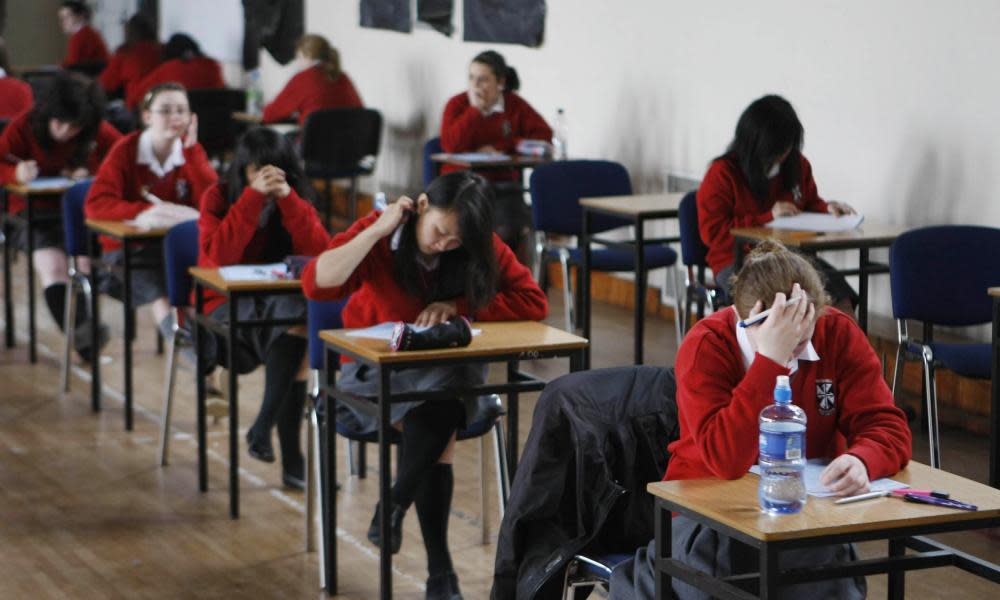New GCSEs: 'Only two pupils in England will get all top marks'

The chief analyst at the Department for Education (DfE) has estimated that just two pupils in England are likely to get all top grades in the new GCSEs being phased in from this summer.
In recent years, parents, pupils and teachers have become accustomed to a sizeable number of the highest-achieving students in the most academically successful schools gaining all straight A*s in their GCSE examinations.
But according to Dr Tim Leunig, who is also chief scientific adviser to the DfE, the new, more rigorous exams - which will be graded from 9-1 rather than A*-G – with 9 as the highest – will mean very few pupils are able to gain straight 9s in all their subjects.
In a conversation on Twitter over the weekend, picked up by the TES, Leunig estimated that as few as two pupils might end up achieving top grades in all their GCSEs under the new grading system, which is already causing confusion among parents and pupils.
Leunig wrote: “2 is my guess – not a formal DfE prediction. With a big enough sample, I think someone will get lucky...”
It was always the government’s intention that the new GCSEs should be more rigorous and that 9 should act almost as an additional grade, to differentiate the most exceptional students.
But Leunig’s prediction – lighthearted or otherwise – is likely to cause consternation in many of the most successful schools, where parents, pupils and teachers may find it hard to adjust their expectations.
The first of the new qualifications will be tested this summer when students will sit revamped exams in English literature, English language and mathematics, with further new exams being phased in over the next two years.
2 is my guess - not a formal DfE prediction. With a big enough sample, I think someone will get lucky... https://t.co/e4RqNy51TY
— Tim Leunig (@timleunig) March 25, 2017
Geoff Barton, the headteacher of King Edward VI school in Suffolk and general secretary designate of the Association of School and College Leaders (ASCL), said: “This is a really unhelpful comment at a really unhelpful time.
“Students and teachers are working hard to prepare students in the final run-up to the summer’s new examinations. All of us, including parents, are in the process of adjusting our mindset to a brand new grading system.
“Tim Leunig’s comments hardly help at a time of high pressure in a high-stakes exam system. So I suggest we ignore any talk of ‘getting lucky’. Instead, let’s focus on what matters: teachers supporting students to achieve their very best … and then celebrating the successes of all of them.”
The exams regulator Ofqual did not want to comment on Leunig’s estimate or make any predictions of its own. The regulator has not done any modelling of outcomes at candidate level.
It has already been established, however, that the number of top grade 9s that are going to be awarded for the new exams will be far fewer than previous A* grades. Currently, 7-8% of grades at GCSE are A*.
There is also uncertainty further down the grading system, because there is no straightforward equivalence between the two systems. Sally Collier, the new chief executive of Ofqual, acknowledged last week that the regulator had a big job explaining the changes.
A Department for Education spokesperson said: “Our GCSE reforms will create gold-standard qualifications that match the best education systems in the world and allow young people to compete in an increasingly global workplace.
“We continue to work closely with the sector to ensure they understand what the changes will mean for them when they come into effect later this year.”

 Yahoo News
Yahoo News 
